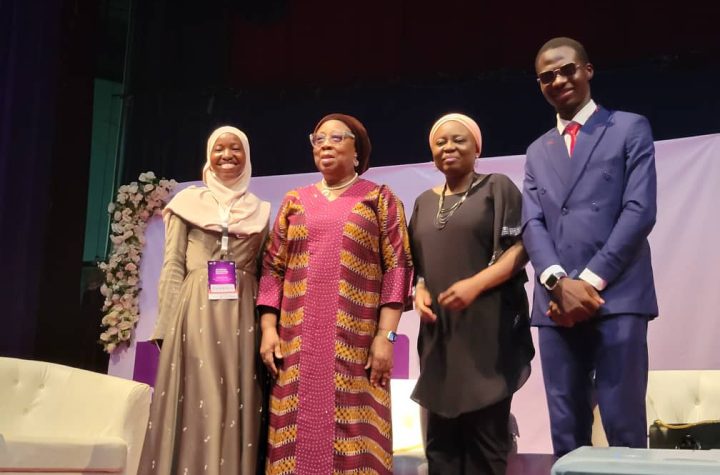
By Abubakare Oluwaseun, Zaynab Oyedeji, Aisha AbdulRahman and Dennis Erezi

In a society where education is one of the major priorities for every individual, if not a requirement to be educated up to the tertiary level, everyone must at least have a basic education. The goal of an average individual in society is to obtain a degree because, as the belief goes, “Education is the key to success.” As students, we strive to get the best to have a comfortable livelihood after school.
Generally, as a university student who graduated with a first-class, which equally means distinction, it is not an easy accomplishment. This requires a lot of sacrifice, dedication and consistent hard work. Being a first-class graduate, the outside world expects that life after school becomes fair and easy for you, meaning that your success breakout should be at your doorstep. Let’s walk through the journey of these two great and passionate scholars who came out with a first-class from the University of Lagos (UNILAG).
First is Abdulrahman Abdulazeez, who graduated with a first-class from the Department of Statistics. The experience afterwards became a reality check.
“Life after school is quite different from being in school. The accolades you get while in school are quite different from life after school because there are a lot of first-class students out there. Generally, as a graduate, you will need to apply for jobs. The advantage of a first-class student will easily open the door, but most importantly, it’s your inner ability that will help you get the job.”
Like Abdulazeez, another first-class graduate of Marine Science, Jinad Mariam Eniola said life after has been overwhelming despite having a lot of encouragement from relatives and friends.
She said graduating with a first class has helped her get a recommendation for a job without an interview, and it positioned her to receive internship opportunities from individuals and organisations. Eniola disclosed that her ‘secret weapon’ is that she puts in her best to every task.
The Challenges And Opportunities
After graduation, Abdulazeez disclosed that he got a job at a financial company as an intern risk manager, a field different from the course he studied in school. He said the company’s management believes that his academic accomplishment suggests he can transition to an intern in risk management.
According to him, life after school is not easy, especially as society believes that you must be able to adapt to anything that comes your way and excel as a first-class graduate.
“It is not an easy journey, unlike school where you only read and pass. When it comes to life after school there will be lots of life controversies about what to do next – being lucky to get an internship eased my burden of life after school.”
Amid the challenges, Abdulazeez, who said finishing as a first-class graduate opens an individual up for multiple professional opportunities, noted that it is important to acquire skills to have an edge in the labour market after a good academic qualification.
“I could remember a scenario where an internship opportunity came up that was restricted to a first-class student and a second-class upper graduate only. Some organizations believe that having outstanding results means you are smart enough to overcome any difficult task,” Abdulazeez said.
Eniola secured two internships from the most sought-after organisations she has always hoped for. Her academic excellence gave her the stepping stone to the success she needed.
“I was also selected as one of the few first-class students in Nigeria to attend a 3-day summit at a resort,” she said. “I’ve been able to attend conferences for first-class students where I connected and discussed my career with top CEOs that I never thought I’d interact with in my life.”
Advice and Recommendations
“My advice for first-class students is not only to focus on the academics but also to expand their networks and most importantly acquire lots of skills, because at the end of it all it is about the skills you can offer to the organisation,” Abdulazeez said.
Eniola advised undergraduates to identify an area of interest for their career and start learning in the speciality before graduating from school. She said this would help students avoid confusion and end up in an unfulfilling career line.
She urged students to network and seek advice from professionals in their desired careers.
“If you don’t put yourself out there for people to know your expertise, you won’t get any opportunities. So put yourself out there, connect with professionals, and seek valuable internships, too,” Eniola said.





More Stories
Podium Maiden Edition Ends with Mass Communication Win
Showcasing the charming spots in UNILAG
FG needs a win-win streak to end ASUU strikes